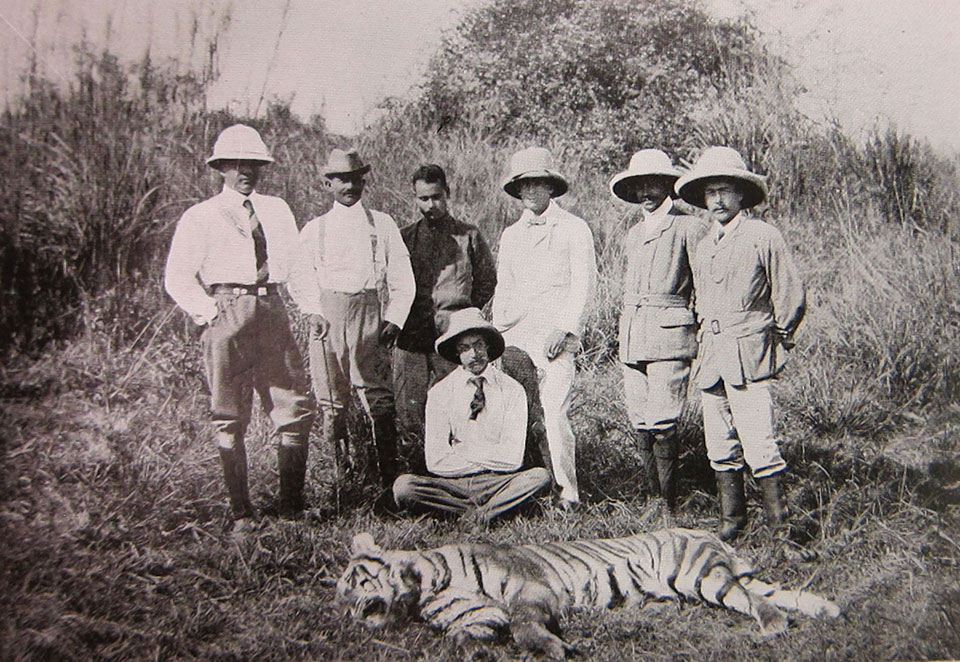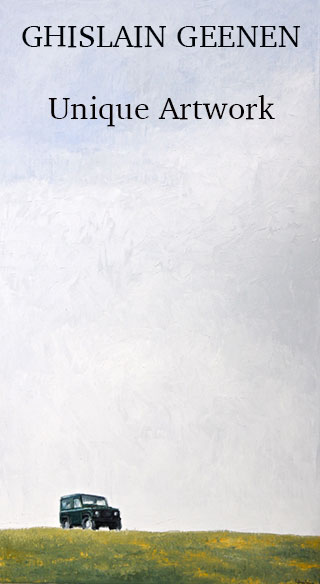The letter we are about to read was sent by a soldier of the West Riding, stationed at Mhow, in India, to his sister, in Bradford, on 7th April 1926.
At the time, Britain was at the height of its powers in India and ruled over a third of the globe. British soldiers and administrators had access to wonderful sporting opportunities and it is on one of these outings that our story unfolds.
The subject of the letter is the unfortunate Major George Pritchard Taylor D.S.O, M.C. M.B of the Royal Army Medical Corps, in which he served from 1909 until 1926.
His career took him to South Africa, France, Russia and India on active service and he was well-decorated and considered an expert revolver and rifle shot. He was an experienced big game hunter and as well as a good polo player and horseman. He was nick-named ‘Dare-devil Taylor’ during the First World War.
7th April 1926
What a week of adventure! It’s nearly taken by breath away. As I told you last week, I went out fishing during the holidays and had quite a good time on the first and second days (Friday & Saturday). I caught 24 fish on Friday and 14 on Saturday; not too bad for one man especially when you know the smallest weighed a pound and a half and the biggest (a carp) five and a quarter pounds.
Well, anyway to get on with the yarn, I’d just nicely got settled on Sunday when I saw a boat put out over the lake with and officer and his wife going over the other side for a bit of shooting.
Everything went on alright for about an hour, when suddenly two shots went off almost together, followed after a second or two by by a third and then there came such a scream, I have heard it ever since.
Naturally, I looked across to where the sound came from. I saw the woman signalling to me so I ran round to her and she told me she and her husband had come across a tiger and without being fired at or anything the damned thing had sprung at them. The officer was only loaded with duck shot but he let it have both barrels of that at its head and then tried to load again but got a jam and, by this time, the tiger had grabbed his right arm.
He managed somehow or other to to slip a lethal cartridge into the barrel and let it have that from the left shoulder with one hand and then it got him. That was when he screamed.
His wife picked up the gun and smashed it across the tiger’s back and the tiger slunk away so she left her husband and called me. Well, we found him, or rather what was left of him. He was practically eaten up.
When we were in Kurdistan I saw a fellow with twenty nine bullets in him, but he didn’t look a hundredth part as bad as this poor blighter did.
Anyhow, we managed to get him to the boat and rowed him to the other side, where we managed to get hold of some niggers to help lift him to his car. We got a charpey (native bed) and used it as a stretcher right across the car and took him down to Mhow.
I have never seen a woman show such superb nerve as his wife, firstly by smashing the gun over the tiger’s back, and then by driving the car a distance of eleven miles to the hospital, without even crying, although she cracked-up as soon as we got him there.
The most pathetic part about the whole think was the man’s pluck.. Although he must have lost quite three parts of the blood in him he kept on talking the whole me.
He said to me “By God corporal that tiger gave me the finest five minutes of my life”., and then he said to his wife “It was damned good while it lasted , wasn’t it old lady”. However, I’m sorry to say that neither of their pluck was any good - he died on Tuesday.
The tiger was afterwards found dead a hundred and fifty yards away from where I was fishing.

NOTES: Mhow Cantonment is in the Indore district of Madhya Pradesh (then Central Province) and is one of the oldest cantonments in India. It was founded in 1818 by John Malcolm. The town is on the highway between Mumbai and Agra and sits on the southern edge of the Malwa Plateau, the watershed of the Chambal and Narmada rivers.
For the purposes of historical authentticity we have kept the text as it appears in the letter. The use of the word 'niggers' to refer to natives of the area, unacceptable by modern standards, was not uncommon a hundred years ago.
Published by Vintage Guns Ltd on (modified )



